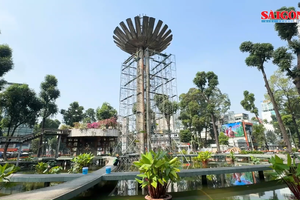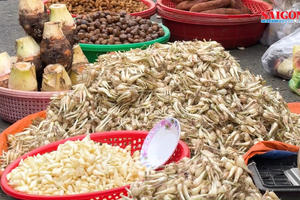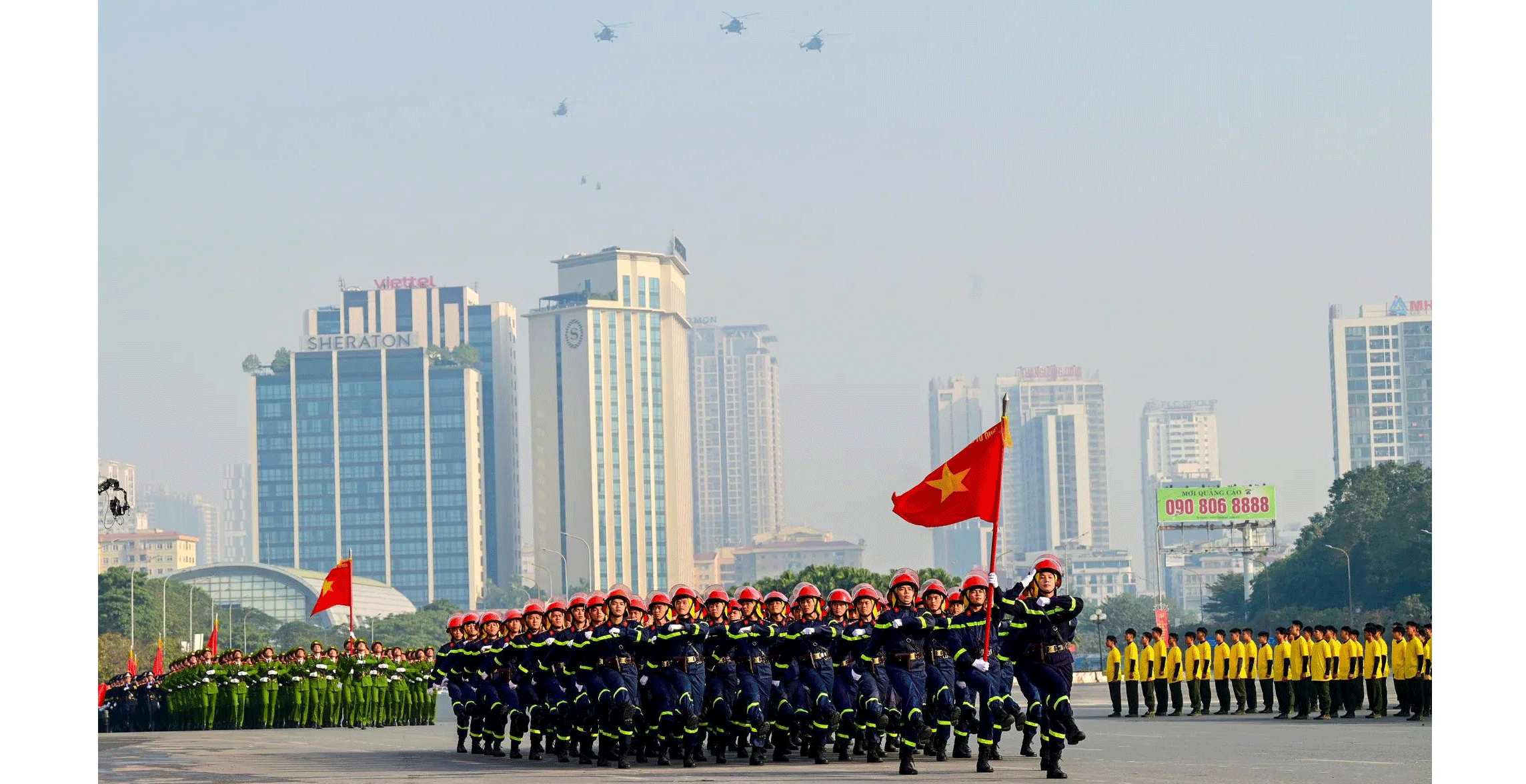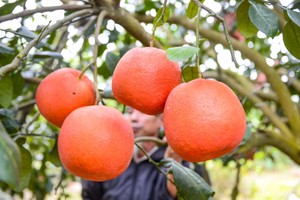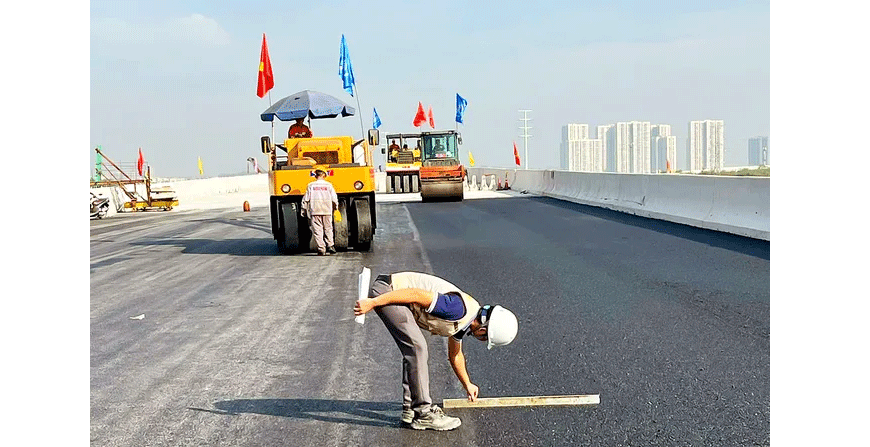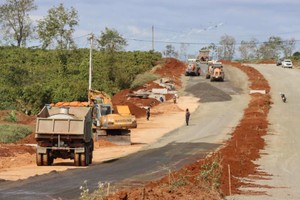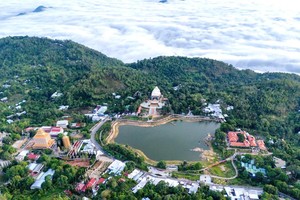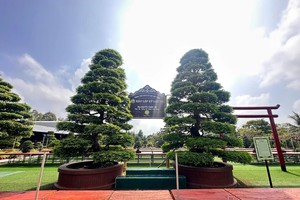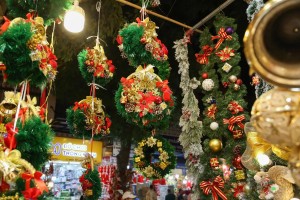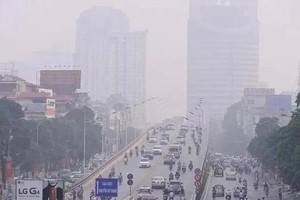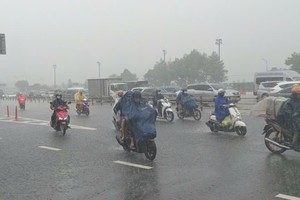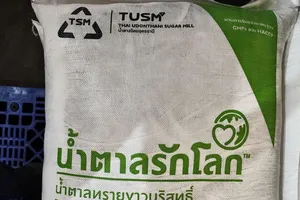However, this tree bears delectable, golden, and crunchy sweet fruits with significant economic value. As a result, Date palm trees are being researched by gardeners in the Mekong Delta for trial cultivation and propagation, aiming to convert crops.
At Sa Dec Flower Village in Dong Thap Province, Nguyen Van Xuan's date palm orchard, situated in Tan Khanh Dong Commune, covers 0.5 hectares and boasts more than 300 date palm trees bearing luxuriant ripe fruits.
Visitors from various provinces are highly delighted as the date palm tree impresses not only with its beauty but also with its incredibly delicious fruit.
Nguyen Van Xuan said that he started planting date palm trees since 2015, mainly for selling saplings. Each sapling, approximately 35cm tall, fetches over VND1 million.
The larger date palm trees, boasting diameters exceeding 20cm, are marketed for over VND8 million. In recent years, these date palm trees have significantly bolstered his family's income.
Xuan further elaborated that this variety of date palm originates from Hawaii, boasting both striking aesthetics and delectable fruit, which has garnered widespread appreciation. However, despite its popularity, it has not been cultivated widely in Vietnam.
At first, he bought some date palm trees for experimental cultivation. Subsequently, due to their considerable economic efficiency, he has decided to propagate them.
Currently, at Xuan's orchard, date palm trees are yielding fruits in yellow and red colors. Each tree produces four to six fruit clusters, with each cluster weighing 7-10kg, fetching VND350,000 per kilogram.
Despite the relatively high price, customers are willing to pay due to the fruits' "captivating colors, satisfying crunch, and delightful sweetness."
Additionally, for those interested in purchasing date palm saplings, they can do so either directly from the orchard or via social media platforms.
At present, many customers in Hanoi, Long An, and Ho Chi Minh City are seeking to acquire substantial quantities of date palm saplings.
In Long An Province, Nguyen Tan Thanh, a farmer in Kien Tuong Town, has grown 100 female date palm trees imported from the UAE, covering an area of one hectare, and anticipating to yield fruits after two years.
Thanh said that, previously, he cultivated date palms using regular seeds, which resulted in seedlings growing into male trees and, thus, no fruit production.
In 2022, he opted to import seeds from Western Asian countries at an approximate cost of VND3 million per sapling.
Although the date palm trees have not reached the fruit-bearing stage, they show rapid growth, limited vulnerability to pests and diseases, and require minimal care.
In the near future, as the date palm trees come into bloom, he plans to acquire pollen from male trees to conduct tissue grafting.
While this process is notably demanding, if it is done successfully, it will yield significant economic efficiency.
After the tissue grafting process, the date palm trees will produce an abundant harvest of fruit, which is larger than the Thai variety and is valued at over VND450,000 per kilogram.
Not only in Long An and Dong Thap provinces, but various eco-tourism destinations across different areas in the Mekong Delta region are also extensively planting these trees to not only yield fruit but also enhance the local landscape for tourism purposes.
Despite its significant economic value, agricultural experts caution against widespread date palm cultivation because there has not been a stable market yet. The demand primarily stems from the novelty factor, attracting visitors to explore and purchase the fruit.
However, if numerous growers enter the market and oversupply occurs, prices could become as volatile as those experienced with other fruit trees.
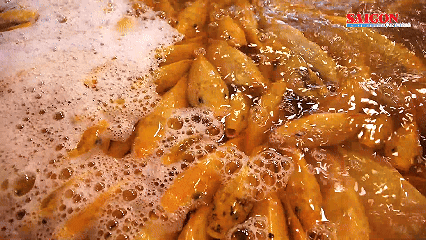
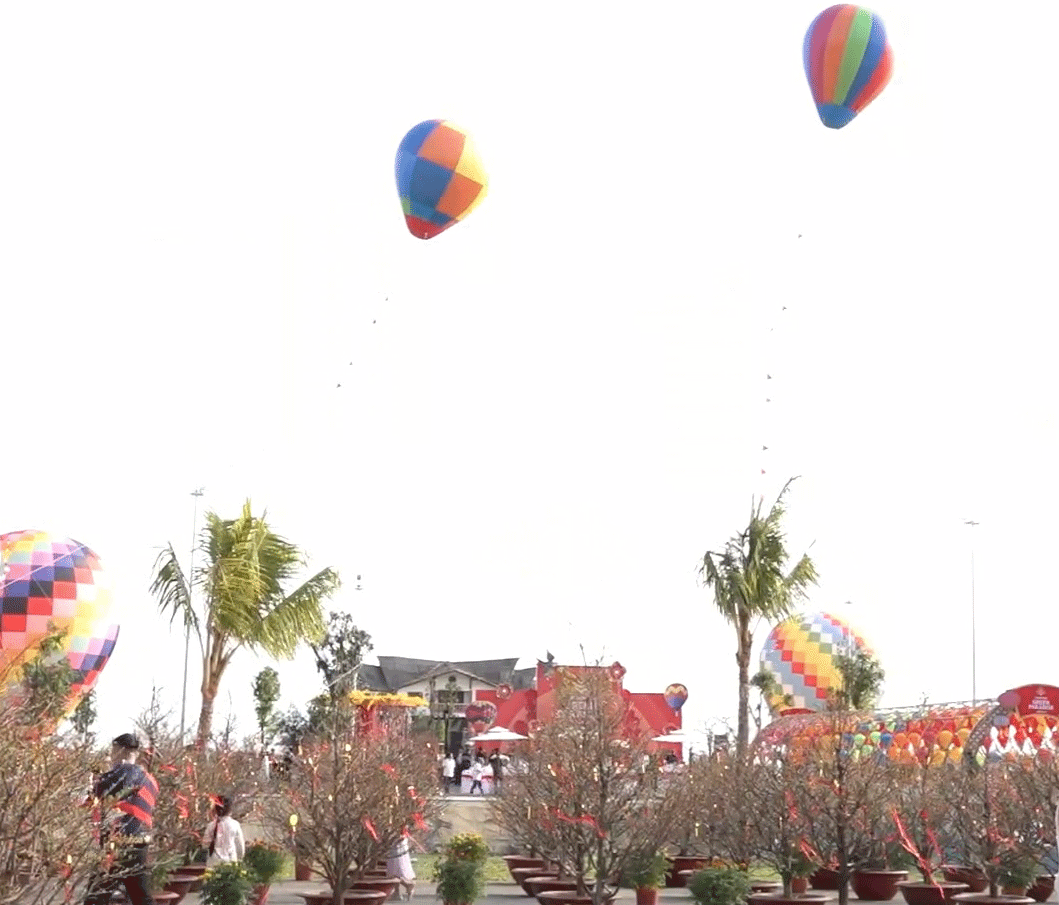

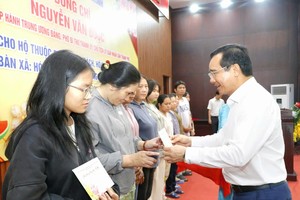
)
